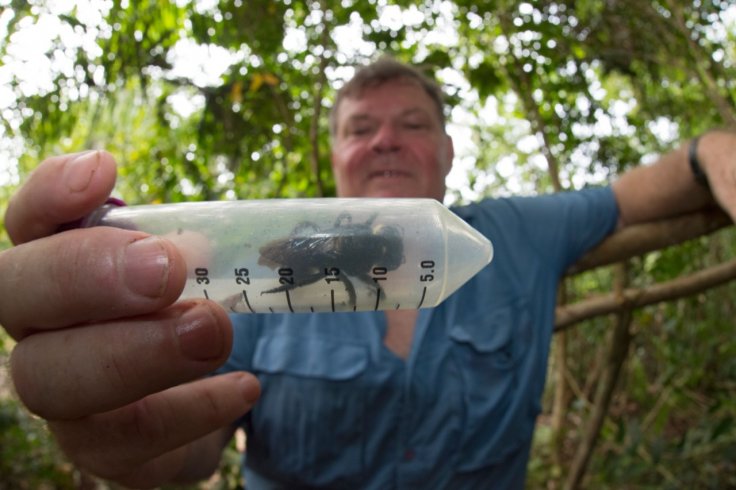
The world's largest bee, 'Megachile pluto' also known as 'Wallace's giant bee' was considered extinct by scientists until a team of International scientists discovered a single female bee on an Indonesian island earlier this year. It should be noted that Wallace's giant bee was last spotted by a scientist in 1981 and since then, experts have speculated that this creature was extinct.
After conducting the research, which was headed by scientists at the University of Sydney, scientists successfully located the single female in Indonesia's North Moluccas island group.
Unlike other bees, Wallace's giant bee has a wingspan of more than two and a half inches and it makes this bee the world's largest among its species. The University of Sydney, in a recent press release, revealed that the single female bee was discovered almost 8 feet off the ground in a tree's termite nest. After documenting their finding, scientists released the bee to nature.
"Amid such a well-documented global decline in insect diversity it's wonderful to discover that this iconic species is still hanging on," said Professor Simon Robson from the School of Life and Environmental Sciences at the University of Sydney.
Clay Bolt, a natural history photographer who initially took the photos of Wallace's giant bee after its discovery also shared his excitement about the new finding. As per Bolt, it was breathtaking to see this insect which everyone thought went extinct from the planet.
"It was absolutely breathtaking to see this 'flying bulldog' of an insect that we weren't sure existed anymore. To see how beautiful and big the species is in real life, to hear the sound of its giant wings thrumming as it flew past my head, was just incredible. My dream is to now use this rediscovery to elevate this bee to a symbol of conservation in this part of Indonesia," said Bolt.
A few weeks ago, a study report published in the journal Biological Conservation had revealed that global insect count, including bees, is reducing drastically. In the study report, researchers also warned that the ecosystem of the planet will collapse if the current trend continues in the coming years.








